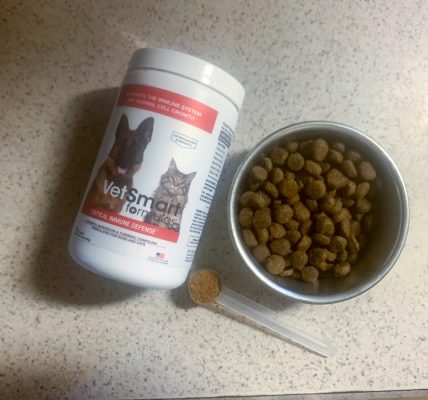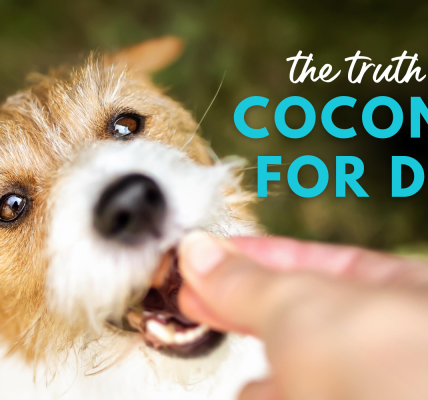The dogs in our families are more than just pets; they are cherished members of the family. As responsible pet owners, ensuring their health and well-being is paramount. One crucial aspect of their care is their diet. In recent years, the shift towards all-natural dog food has gained significant momentum. But what exactly is naturally sourced organic dog food, and why is it gaining such popularity?
Understanding the Importance of Natural Ingredients
All-natural dog food is crafted from wholesome, natural ingredients that are free from artificial additives, preservatives, and fillers. These ingredients are carefully selected to provide optimal nutrition, mirroring what dogs consume in the wild.
Related: The Buzz About Insect-Based Protein: A Game-Changer For Canine Health
Health Benefits of All-Natural Dog Food
Improved Digestion
One of the primary benefits of feeding your dog all-natural food is improved digestion. Natural ingredients are easier for dogs to digest, reducing the risk of gastrointestinal issues such as bloating, gas, and constipation.
Enhanced Energy Levels
Nutrient-rich ingredients in Natural dog food provide a sustainable source of energy, keeping your furry friend active and playful throughout the day.
Better Coat and Skin Health
The quality of your dog’s diet directly impacts the health of their coat and skin. Natural dog food is packed with essential vitamins, minerals, and fatty acids that promote healthy skin and a lustrous coat.
Related: The Ultimate Guide To Tailoring Dog Diets
Potential Risks in Traditional Commercial Dog Diet
Commercial dog foods often contain low-quality ingredients, including by-products, artificial colors, and preservatives. These ingredients can contribute to various health issues in dogs, including allergies, obesity, and digestive problems.
Common Ingredients to Avoid in Dog Food
When choosing dog food, it’s essential to avoid ingredients like corn, wheat, soy, and artificial additives. These ingredients offer little nutritional value and can trigger allergic reactions in sensitive dogs.
Related: Unveiling The Power Of BSFL In Dog Nutrition: A Sustainable Approach To Canine Well-Being
How to Choose Organic Dog Food
Reading Labels
Take the time to carefully read and understand the labels on dog food packaging. Look for recognizable ingredients and avoid products with lengthy lists of additives and fillers. Buy the best all-natural dog food for your companions.
Understanding Certifications
Certifications such as USDA Organic and Non-GMO Project Verified can help ensure the quality and integrity of the ingredients in your dog’s food.
Related: Why Insect Pet Food Is Creating A Buzz In The Pet Food World
Transitioning Your Dog to All-Natural Sustainable Dog Food
When transitioning your dog to sustainable food, do so gradually to prevent digestive upset. Mix small amounts of the new food with their current diet and gradually increase the proportion over several days.
Cost Considerations of Organic Dog Food
While all-natural dog food may be more expensive than conventional options, investing in your dog’s health can lead to long-term savings by reducing veterinary bills and promoting overall well-being.
Related: Exploring The Rise Of Insect-Based Dog Food In India
Homemade vs. Commercial Dog Food
Some pet owners opt to prepare homemade meals for their dogs using all-natural ingredients. While this can be a rewarding option, it’s essential to ensure the meals are balanced and meet your dog’s nutritional needs.
Addressing Common Misconceptions
There are several misconceptions surrounding all-natural dog food, including the belief that it lacks essential nutrients. In reality, reputable brands formulate their products to meet or exceed nutritional standards.
Related: Why Your Dog Needs Insect Protein For The Best Nutrition And Health
Allergy Considerations in Natural Dog Food
For dogs with food allergies or sensitivities, all-natural dog food can be a game-changer. By eliminating common allergens and artificial ingredients, you can help alleviate discomfort and improve your dog’s quality of life.
Impact on the Environment
Choosing all-natural dog food isn’t just beneficial for your pet; it’s also better for the environment. Sustainable farming practices and ethically sourced ingredients help reduce the carbon footprint associated with pet food production.
Related: Dog Nutrition And How Much Protein Does Dog Need?
Case Studies: Real-Life Benefits of Nutrient-rich dog food
Numerous anecdotal accounts and studies highlight the positive impact of switching to all-natural dog food, including improved vitality, longevity, and overall health.
Tips for Storing and Serving Raw Dog Food
To preserve the freshness and nutritional integrity of all-natural raw dog food, store it in a cool, dry place away from direct sunlight. Follow the manufacturer’s guidelines for serving size and feeding frequency.
Related: The Complete Guide To Dog Protein Powder And How It Can Improve Your Dog’s Diet
Conclusion
In conclusion, the benefits of all-natural dog food are undeniable. You can support your dog’s health and longevity by prioritising quality ingredients and avoiding harmful additives. Make the switch to natural canine food today and give your furry friend the gift of optimal nutrition.
FAQs
Is organic dog food suitable for dogs of all ages?
Absolutely! Natural dog food is suitable for dogs of all ages, from puppies to seniors.
Can I mix all-natural dog food with my dog’s current diet?
Yes, you can gradually transition your dog to all-natural food by mixing it with their current diet.
Is homemade natural dog food better than commercial options?
Both homemade and commercial organic dog food can be nutritious, as long as they are well-balanced and meet your dog’s nutritional needs.
If I switch to natural dog food, will it help my dog’s allergies?
Many dogs experience relief from allergies and sensitivities after switching to all-natural food.








